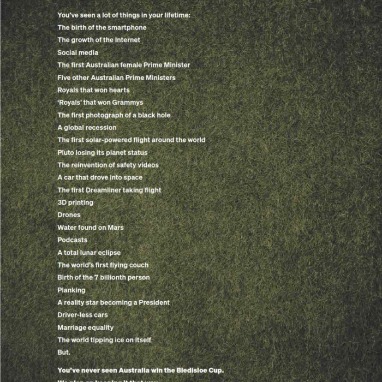Compound interest Albert Einstein

No attribution was provided, and anonymous advertising copy writers have applied the “eight wonder” label to a wide variety of objects and ideas for more than two hundred years. QI has found no substantive evidence that Albert Einstein, Baron Rothschild, or John D. Rockefeller employed the saying. A. Michael Lipper, president of Lipper Analytical Securities Corp., quotes Albert Einstein’s remark that “The eighth wonder of the world is compound interest.” If you can invest at a sure 7 percent return, your money will double in 10 years. If you are patient, and stick with your investments over time, you will almost always come out ahead. Upon closer inspection, it’s apparent Gates had merely rephrased Einstein’s above-mentioned insight. After all, Gates’ so-called law merely dusts off Nature’s age-old law of growth.
Why Einstein Called Compound Interest a Superpower
For Einstein, advanced purchase of equipment journal entry plus examples education is not job training, but training to perform at high levels in any situation, job or otherwise. This agrees with my view on education, with its worth being measured in more than just financial return on investment. Would Einstein feel the same way now, with a college education costing several multiples more than it did in his time, even after taking inflation into account? He clearly sees the importance of cognitive ability and education for growing human capital, which has a positive effect on options for long-term wealth. Despite his initial problems with the regimented style of school, Einstein strongly valued the cognitive skills he gained from his later studies.
He cited a good college education with providing the type of cognitive skills that allows people to think for themselves and imagine possibilities that have never been imagined. “The value of a college education is not the learning of many facts but the training of the mind to think,” Einstein was quoted in the New York Times in 1921. In 1916 a character in an advertisement in a California newspaper called “compound interest” the “greatest invention the world has ever produced”.
Albert Einstein > Quotes > Quotable Quote
Because no idea is original, perhaps the “genius” simply removes the letter ‘K’ — from what people Knew yesterday — and repackages it as new today. Albert Einstein definitely leaned towards the socialist end of the what is a trial balance economic spectrum, but he always emphasized the important of individual freedom, democracy, and personal liberty. He was not a fan of communism in Russia, nor was he a supporter of German fascism or nationalism. The United States was politically the best environment for him, particularly with his belief that art and science relied on the availability and encouragement of individualism. There is no question that Einstein enjoyed the personal freedom to succeed in the United States afforded by the country’s capitalist underpinnings.
- QI has found no substantive evidence that Albert Einstein, Baron Rothschild, or John D. Rockefeller employed the saying.
- And as Einstein notes, if you observe Mother Nature at work, it’s apparent she’s mastered the art of simplicity.
- Albert Einstein was arguably one of the most brilliant thinkers in the twentieth century.
- While it’s true that Albert Einstein did not utter the phrase “uninterrupted compounding interest is the eighth wonder of the world,” I’m certain he would have commended the individual who did.
The Great Importance of People Who Don’t Belong
It doesn’t change the fact that compound interest should be on the mind of anyone looking to build wealth over time. He might have; the sentiment matches what seems to be this particular genius’s sense of humor. Many homeowners who have struggled to meet their mortgages month after month, only to find after years of making payments that most of their money has gone to cover interest charges, have felt like cursing whoever came activity-based cost systems allocate costs by focusing on up with the concept of compound interest.
One question I was asked at practically every stop was, “What’s the greatest invention of all time? ” I finally worked up an acceptable answer to this one, one I hoped would preserve my goal of presenting positive, optimistic views of science. In conclusion, this article presents a snapshot of current research. The label “eight wonder” was applied to compound interest in an advertisement for a bank in 1925.
Learning

While it’s true that Albert Einstein did not utter the phrase “uninterrupted compounding interest is the eighth wonder of the world,” I’m certain he would have commended the individual who did. To discover how you can establish a system of uninterrupted compounding interest machines or infinite family banks, click here to embark on your journey. Compound interest has essentially tripled (x2.65) your investment (principal). However, Albert Einstein certainly had an opinion on the matter. Being thankful for these opportunities is certainly one reason not to throw it away by making bad decisions with money.
Moving to the United States and becoming a citizen of the country was important to Einstein. He loved the idea that he and others could question authority without fear of reprisal. Einstein also enjoyed the lack of a class system as was prevalent throughout Europe. America provided the opportunity for any individual to succeed. Albert Einstein was arguably one of the most brilliant thinkers in the twentieth century.
It may be difficult, but financial independence is within reach for anyone who wants it although there can be unavoidable external situations making it more difficult or impossible for some. But for at least those reading Consumerism Commentary, there should be enough opportunity to move towards financial independence. With this philosophy, Einstein would have embraced frugality. Despite his world travels and, especially later in his life, his ability to command top salaries and fees, he maintained modest living environments. Social security is squarely based on what has been called the eighth wonder of the world—compound interest. Quote investigator also found some earlier quotes claiming that compound interest is the “greatest invention”, but none of them involve Einstein in any way until well after his death.
QI hypothesizes that an anonymous advertising copywriter initiated the idea that compound interest was the world’s greatest invention or man’s greatest invention. However, 1916 is not necessarily the origin of this hyperbolic statement, and future researchers may locate earlier citations. QI was unable to find any support for the attachment to Einstein, and QI believes that it is very unlikely that Einstein made this remark.
